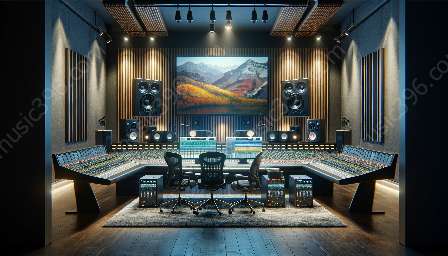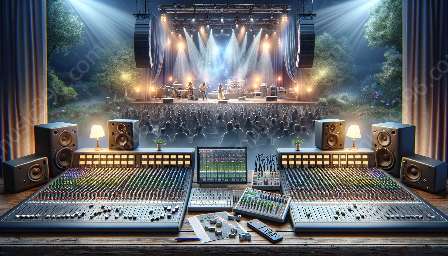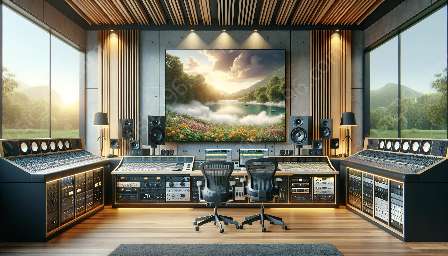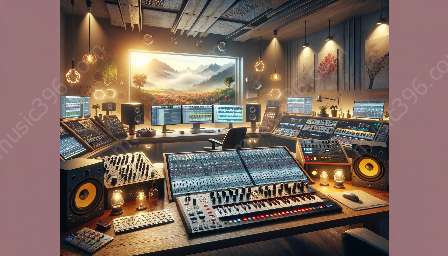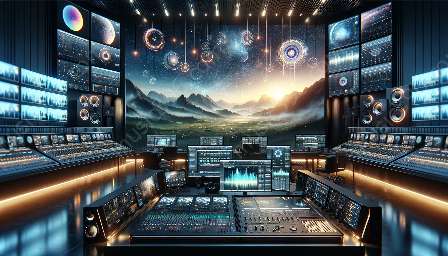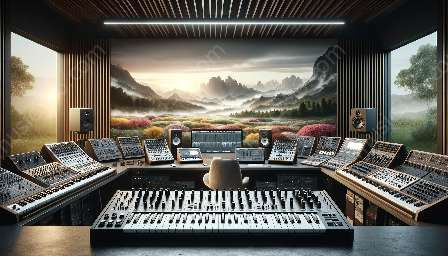Virtual reality (VR) technology has significantly influenced the music industry, offering new opportunities for the integration of music within immersive experiences. As VR continues to evolve, so too do the legal considerations surrounding the use of music within virtual environments. This article explores the intricacies of music licensing in virtual reality, delving into its compatibility with music licensing and copyright laws, as well as its implications for CDs and audio content.
Understanding Music Licensing in Virtual Reality
Music licensing in virtual reality refers to the process of obtaining legal permission to use copyrighted music within VR content. This includes music used in VR games, interactive experiences, virtual concerts, and other forms of immersive entertainment. The licensing agreements for virtual reality content are distinct from traditional music licensing, as they often require specific provisions related to the virtual environment and user interaction.
When integrating music into a VR experience, content creators must navigate through the complexities of licensing agreements to ensure compliance with copyright laws and intellectual property rights. This involves obtaining the appropriate permissions from the owners of the music, such as record labels, music publishers, and individual artists. Additionally, understanding the scope of use, territories, and duration of the licenses is crucial in the context of virtual reality, where the distribution and interaction with the music can differ from traditional mediums.
Complications and Challenges
Music licensing in virtual reality presents various complications and challenges, particularly due to the interactive nature of VR environments. In traditional music licensing, the licenses are often structured based on predetermined uses, such as broadcasting, public performance, or synchronization. However, in virtual reality, the user's actions and interactions within the VR space can alter the way the music is experienced, leading to potential complexities in defining the scope of use within the licensing agreements.
Furthermore, the issue of spatial audio in virtual reality adds another layer of complexity to music licensing. Spatial audio technology allows for the placement and movement of sound within the virtual environment, creating a more immersive auditory experience for users. This technology requires additional considerations in licensing, as the dynamic nature of spatial audio may impact how the music is perceived and utilized within VR content.
Integration with Copyright Laws
The integration of music licensing in virtual reality must align with existing copyright laws and regulations to ensure proper protection of the rights of music creators and copyright holders. Content creators and VR developers need to understand the legal framework governing copyright law, especially as it pertains to the use of music in immersive digital experiences.
One key aspect of copyright law that intersects with music licensing in virtual reality is the concept of fair use. Content creators must be mindful of fair use principles when incorporating music into VR content, as unauthorized use of copyrighted music can lead to legal ramifications. Fair use considerations take into account factors such as the purpose and character of the use, the nature of the copyrighted work, the amount and substantiality of the portion used, and the effect on the potential market for the original work.
Additionally, understanding the distinction between compositions and sound recordings is vital in navigating the complexities of music licensing in virtual reality. Compositions refer to the underlying musical works, including the melody, lyrics, and musical arrangement, while sound recordings encapsulate the specific audio recordings of those compositions. Both compositions and sound recordings may have separate copyright holders, requiring distinct licensing agreements for the use of each element within VR content.
Impact on CD & Audio Content
The emergence of virtual reality has the potential to reshape the consumption and distribution of audio content, including music albums and CDs. As VR experiences intertwine with music, traditional formats of audio consumption may undergo changes to accommodate the immersive nature of virtual reality.
For CD & audio content, the implications of music licensing in virtual reality extend to licensing for the reproduction and distribution of audio recordings within VR experiences. Content creators looking to incorporate existing music albums or CD tracks into their VR projects must secure the appropriate licenses to avoid infringing on the rights of copyright holders. The expansion of VR platforms and the virtual concert landscape further underline the increasing importance of aligning music licensing within the virtual reality realm with the legal framework governing CD & audio content.
Conclusion
As virtual reality continues to revolutionize the way music is experienced and integrated into digital environments, the landscape of music licensing in VR remains a dynamic and evolving domain. Understanding the legal ramifications, copyright implications, and the intersection with CD & audio content is essential for content creators, VR developers, and music industry professionals.
Navigating the complexities of music licensing in virtual reality requires a comprehensive understanding of the legal landscape and an awareness of the dynamic nature of immersive digital experiences. By staying informed about the nuances of music licensing within VR, stakeholders can leverage the potential of virtual reality while maintaining compliance with copyright laws and ensuring fair compensation for music creators and copyright holders.






